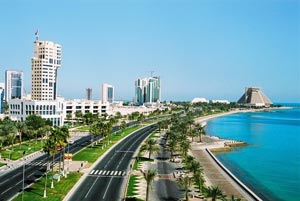
Oil-rich Qatar has seen a massive rise in its population, more than doubling since 2004, attributed to a huge influx of expatriates from the West.
Early results from a recent census show that the population of Qatar is now somewhere in the region of 1.69 million, the last census, conducted in 2004, came back with a population of 774,000. Only 200,000 people are Qatari natives.
The surge in numbers is predicted to continue, Qatar’s Ministry of Municipality and Urban Planning expects the population to hit the three million mark by 2026.
With huge reserves of oil and natural gas, Qatar’s economy has gone from strength to strength, and this has led to a large amount of Western expats travelling to the country to work. However, some people think the population boom is just a passing wave, and that the numbers will decrease once the expats finish their work. Simon Williams, an economist at HSBC Middle East said: “It has been an exceptionally rapid phase of economic growth, and that's required strong gains in the workforce. As the economy matures, the pace of demographic growth will moderate as well. Many people are involved in the buildout of Qatar's energy infrastructure - when the work is done, they will go home.”
Vanessa Rossi, of the think tank Chatham House, echoed Mr Williams thoughts: “Some of the jobs for migrants will disappear - not only because construction will tail off but also because more jobs will be taken over by better trained local talent in the future, especially in office/services functions such as IT, the financial sector, property, and business management. It would seem reasonable to see this population growth tapering off in the range of two to three million residents in the future”.
But with a recent expansion to Qatar’s facilities and continued Government expansion, Farah Ahmed Hersi, an economist at Masraf al Rayan, thinks the boom will only continue: “We believe Qatar's population will continue to grow at a steady base of 5.3 per year, as there are still plenty of untapped resources in the country, including some energy-related resources that would fuel growth in the foreseeable future and serve as a magnet for expatriates.”

